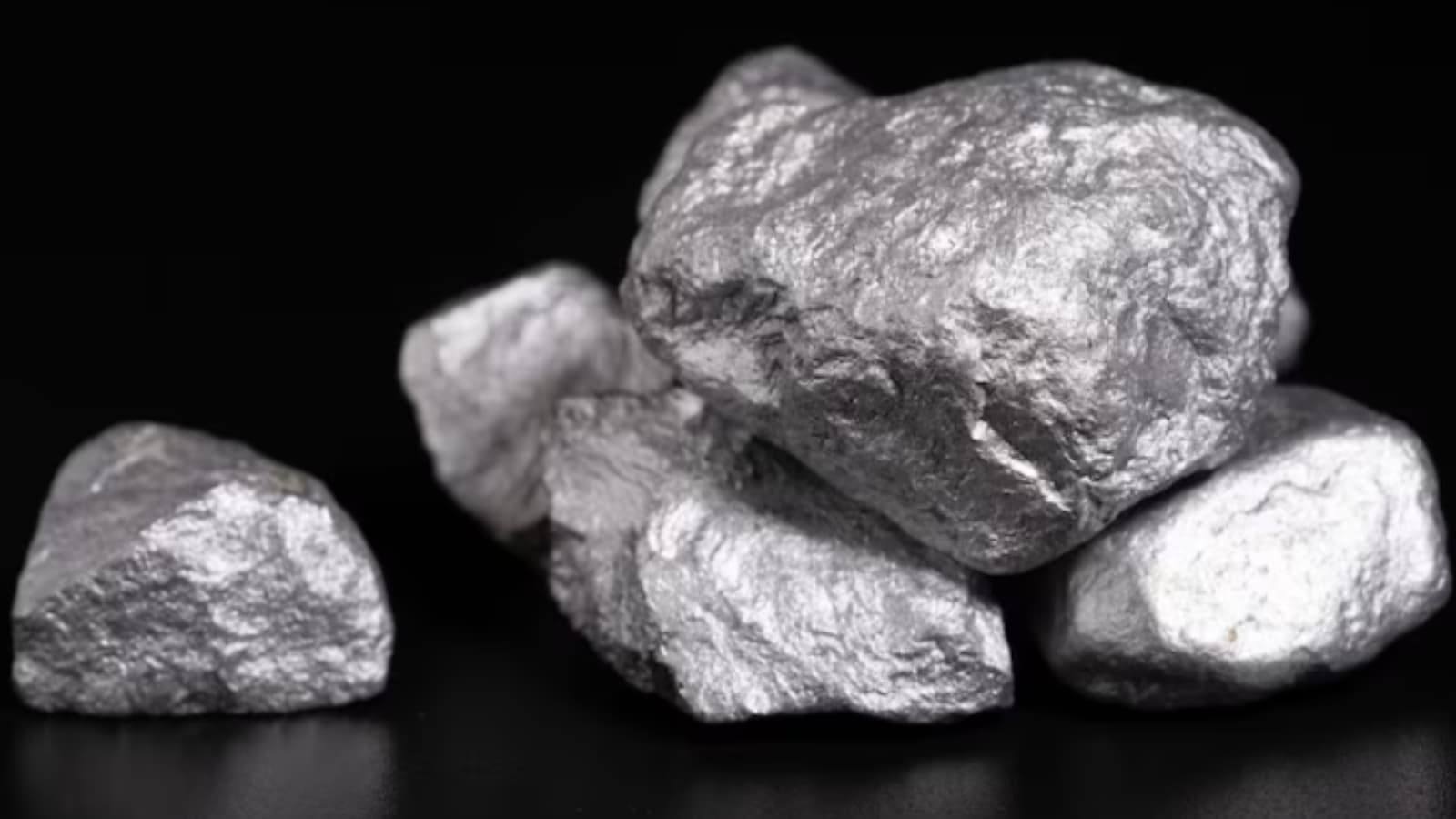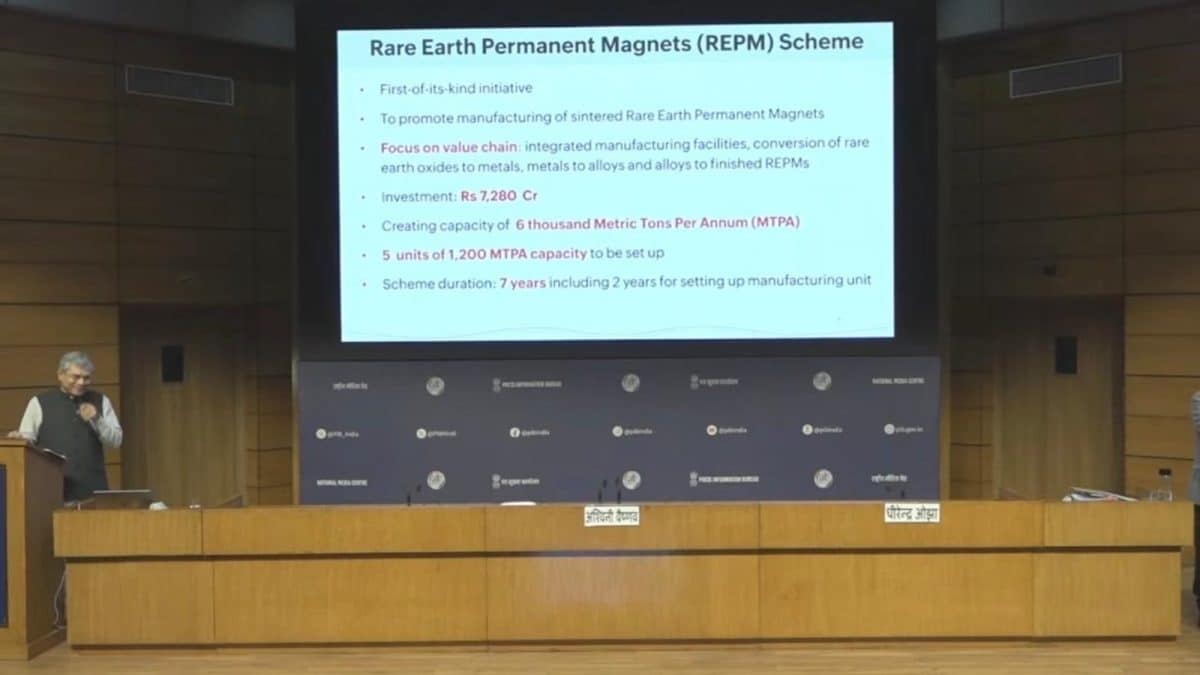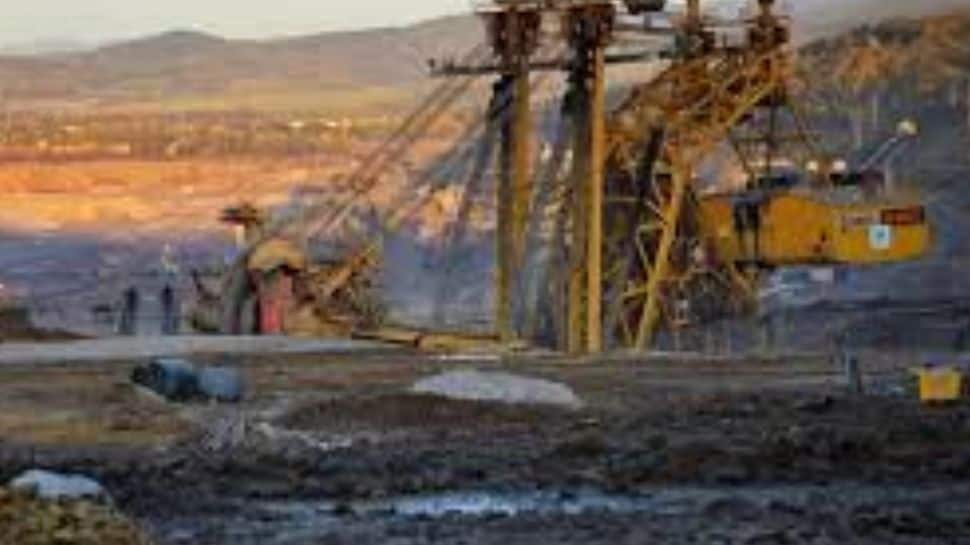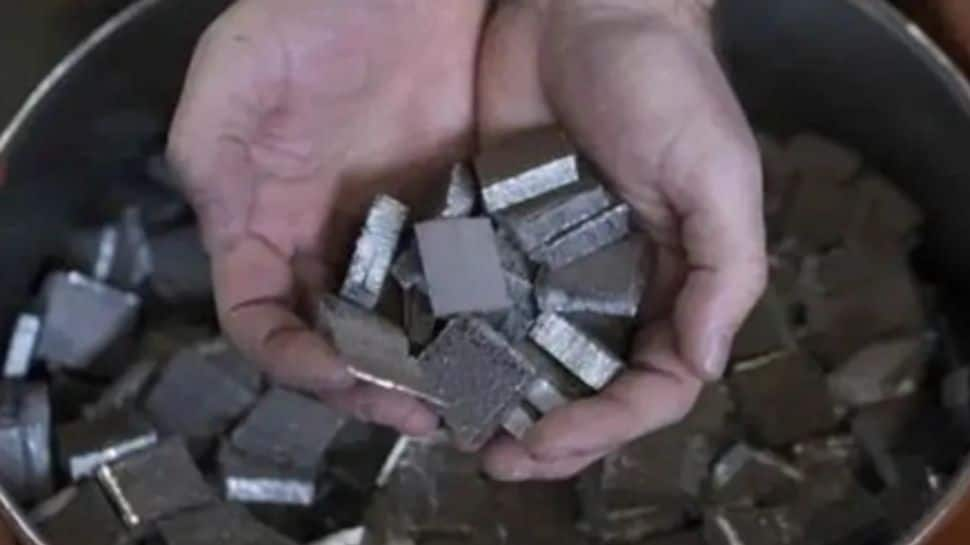Business
Exploration Of Critical Minerals In Northeast Among The Main Priorities: G Kishan Reddy
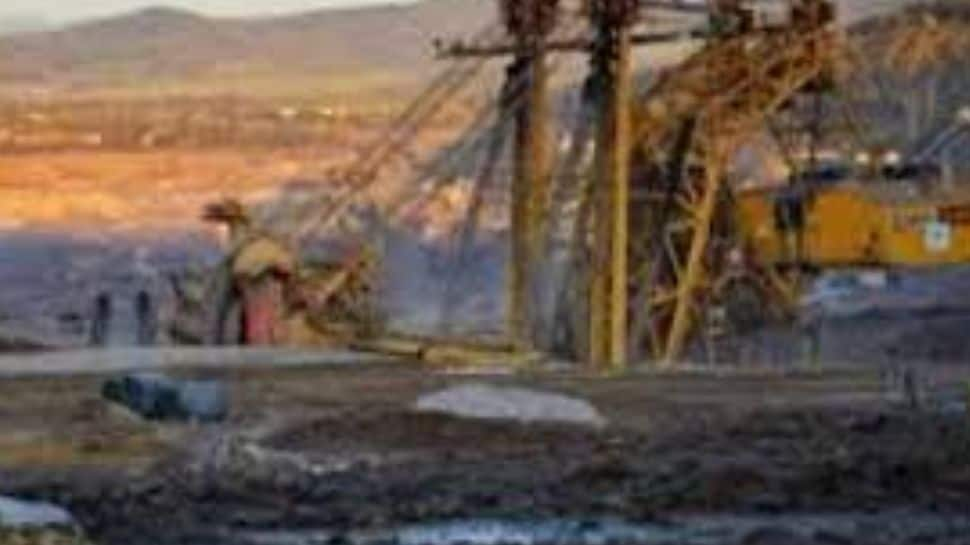
New Delhi: Union Minister of Coal and Mines, G Kishan Reddy, on Monday said that exploration of critical minerals in Northeast India is the main agenda of the government, among other activities.
Speaking to the reporters during the inauguration of the Namchik-Namphuk Coal Mine in Changlang district of Arunachal Pradesh today, the Minister said, “We want to develop the Northeast in every sector. Currently, coal-based activities are ongoing in Assam, and in the coming days, we will accelerate exploration activities in Mizoram and other states.”
“Additionally, there are significant reserves of critical minerals in neighbouring countries. Since major coal-related activities are happening in those countries, it indicates that the areas of our country bordering them may also have reserves of coal and critical minerals. Therefore, exploring these reserves, developing the region, providing employment to the local population, and boosting economic activity in the area is our main agenda,” the Minister said.
Critical minerals are essential resources for a nation’s economic development, national security, and modern technologies, including renewable energy, advanced manufacturing, and digital infrastructure. They are defined by their importance, not their scarcity, but they pose supply chain risks due to limited availability in certain geographic locations and complex global extraction and processing chains.
The much-anticipated exploration project, being developed by the Mahalaxmi Group, is expected to generate an estimated Rs 4,500 crore in revenue for the Arunachal Pradesh government, said Union Coal Minister Reddy along with Arunachal Pradesh Chief Minister Pema Khandu in a joint media briefing during the inauguration.
Reddy said the inauguration would mark a “new era of trust, transparency, and transformation” in the region’s mining sector.
“This is not just a mining project. It is a symbol of trust, transparency, and transformation for the people of Arunachal Pradesh. We are bringing sustainable, scientific, and legal mining practices to a region that holds immense potential,” the union minister said ahead of the event.
Chief Minister Khandu said the project would be a major driver of industrial growth and employment in the state.
“This initiative will not only boost revenue but also bring in skill development, infrastructure, and long-term employment for our youth. We are proud to be part of India’s growth journey,” he said.
The Namchik Namphuk coal block, with reserves of 1.5 crore tonnes, was first allocated in 2003 but faced long delays and stoppages due to various challenges. It was revived through a transparent auction process in 2022, opening the doors for private sector entry and marking the end of years of delays.
This initiative carries forward the vision of EAST – Empower, Act, Strengthen, Transform – a guiding philosophy for every initiative in the Northeast. With this development, Arunachal Pradesh joins india’s coal journey, the world’s second-largest coal producer, which crossed a record 1 billion tonnes of production last year.
According to the estimate of coal ministry, mine is expected to generate over Rs 100 crore annually as revenue for the state, creating jobs and prosperity for youth.
Business
Novo Nordisk shares rise 8% after Wegovy obesity pill has ‘solid’ launch

A pharmacist displays a box of Wegovy pills at a pharmacy in Provo, Utah, Jan. 15, 2026.
George Frey | Bloomberg | Getty Images
Shares of Novo Nordisk rose more than 8% on Friday after early prescription data showed an encouraging start to the U.S. launch of the company’s new GLP-1 pill for obesity.
In a Friday note, TD Cowen analysts called it a “solid start” for the first-ever weight loss pill, but said “one data point does not make a trend.” They cautioned that they need to see more data to fully assess early demand for the Wegovy pill, which officially launched Jan. 5 after winning approval in late December.
Still, the initial data is a boost to the Danish drugmaker’s hopes of winning back more share from its chief rival, Eli Lilly, this year in the booming obesity and diabetes drug market. Eli Lilly won the majority market share in early 2025 and is trailing closely behind Novo Nordisk in the pill space, as it prepares for the upcoming launch of its own oral drug for obesity.
In a Friday note, Leerink Partners analyst David Risinger said around 3,100 prescriptions for the Wegovy pill were filled in the first week of the launch, citing IQVIA data for the week ending Jan. 9. In the first week of the commercial launch of Eli Lilly’s popular obesity injection, Zepbound, around 1,300 prescriptions were filled, and roughly 8,000 were filled in the second week, he noted. That injection won U.S. approval in late 2023.
The TD Cowen analysts cited somewhat different data published by Symphony through Bloomberg.
The analysts said around 4,290 prescriptions were filled for Novo Nordisk’s pill during its first full week of launch, with the majority being for the starting dose of the drug. They added that the data from their source or IQVIA likely don’t include prescriptions through Novo Nordisk’s direct-to-consumer pharmacy or its telehealth partners.
The analysts said that compares with the roughly 1,900 prescriptions filled for Zepbound during its first full week on the market.
Assuming the Symphony data is accurate, the pill “is already outstripping its injectable counterparts at the same stage of their launch,” TD Cowen analyst Michael Nedelcovych wrote in the note. A more direct comparison between the pill and the injections can be made based on available data early next week, though the figures may not prove more useful for another two to three quarters, he added.
Nedelcovych said he wants to see the full picture on the direct-to-consumer channel, which holds “significant promise” for the pill’s launch.
Demand could also shift once Eli Lilly’s pill, orforglipron, enters the market in the next few months, he added.
While Novo Nordisk’s drug has a head start, it is a peptide medication with dietary requirements — no food or drink for 30 minutes after taking the pill with water — that may hinder uptake. Eli Lilly’s pill is a small-molecule drug and not a peptide, meaning it does not have those restrictions.
Business
Hassett pivots to possible ‘Trump cards’ amid credit card interest rate battle with banks

Kevin Hassett, director of the National Economic Council, speaks to members of the media outside the White House in Washington, DC, US, on Friday, Oct. 24, 2025.
Francis Chung | Bloomberg | Getty Images
White House economic advisor Kevin Hassett said Friday that large U.S. banks could voluntarily provide credit cards to underserved Americans as a means to address President Donald Trump’s affordability push.
A week ago, Trump called for banks to cap credit card interest rates at 10%, an idea that has been roundly rejected by industry executives and their lobbyists this week.
Now, Hassett, who is director of the National Economic Council, is floating a different plan, this one more narrowly focused on consumers who don’t have credit access but have the income to justify credit lines.
“They could potentially voluntarily provide for people who are in that sort of sweet spot of not having financial leverage very much because they don’t have access to credit, but they have enough income and stability in their lives so they’re worthy of credit,” Hassett told Fox Business host Maria Bartiromo.
“Our expectation is that it won’t necessarily require legislation, because there will be really great new ‘Trump cards’ presented for folks that are voluntarily provided by the banks,” he said.
The comments could indicate that the administration is downgrading its efforts for broad changes to the card industry that would be difficult to enact and that could hit consumer spending and the economy.
This week, bankers discussing fourth-quarter results said that rather than offering cards at a 10% interest rate, as Trump has said should happen by Jan. 20, the banks would simply close many customers’ accounts.
Hassett’s statement came in response to a question about whether bankers would be forced to comply with Trump’s rate cap, a move that would probably require new legislation.
The administration has been talking with “CEOs of many of the big banks who think that the president’s onto something,” Hassett said.
A major credit card issuer and a bank lobbyist representing big lenders told CNBC that they haven’t yet had any discussions with the administration about the “Trump card” concept.
Business
Mining companies hold FTSE back in quiet end to the week

Stocks in London ended little changed on Friday, with blue chips edging lower after notching another record as investors held fire ahead of the long weekend in the US.
“Investors have been kept on their toes year-to-date with non-stop geopolitical issues, and mixed messages from the business world. A quieter day on the corporate reporting calendar gave investors a chance to catch their breath and take stock of events,” said Dan Coatsworth, head of markets at AJ Bell.
The FTSE 100 index closed down just 3.65 points at 10,235.29. It had earlier hit a new intra-day best level of 10,257.75.
The FTSE 250 ended up 31.39 points, 0.1%, at 23,311.37, and the AIM All-Share closed just 0.27 of a point higher at 804.75.
For the week, the FTSE 100 rose 1.1%, the FTSE 250 climbed 1.2%, and the AIM All-Share advanced 2.1%.
In European equities on Friday, the CAC 40 in Paris closed down 0.7%, while the DAX 40 in Frankfurt ended 0.2% lower.
“There was a slightly negative tone across European stock indices on Friday,” commented David Morrison, senior market analyst, at Trade Nation. “It appeared that investors were more comfortable taking some risk off the table, no doubt mindful that US markets will be closed on Monday for Martin Luther King Day.”
In London, the FTSE 100 was pegged back by weak mining stocks, a key factor behind recent index strength.
The price of copper fell 3.0%, and silver slumped 3.7%, giving up some recent gains, while gold nursed less severe falls.
Gold was quoted at 4,594.24 dollars an ounce on Friday, down from 4,616.76 on Thursday.
In response, Endeavour Mining fell 2.7%, Anglo American declined 2.4%, Antofagasta dipped 2.9%, and Glencore fell 2.5%.
Strategists at Bank of America downgraded the mining sector to ‘underweight’ and lifted energy to ‘market weight’.
“After sharp outperformance for mining, the potential downside risks stemming from the sector’s macro drivers are becoming hard to ignore,” BofA said.
BofA noted that a historical divergence in commodity prices has led to a decoupling among European resources with a surge in metal prices over recent months, including a 50% rally in copper, alongside a “roll-over” in energy prices, with the oil price down 30% to four-year lows recently.
As a result, the copper-to-oil ratio has risen close to a 40-year high, which in turn has led to significant divergence between European resources sectors, with mining outperforming by 40% since April, while energy has underperformed by nearly 15%.
“Resources sector pricing looks stretched in both directions,” BofA added.
Brent oil traded higher at 64.48 dollars a barrel on Friday, up from 63.55 late on Thursday.
Pearson ended a miserable week for investors, with a further 4.1% decline.
The educational publisher has seen its shares fall 12% this week after a poorly received trading update.
A previously undisclosed contract loss for US student assessment in New Jersey, which will drag on first-half growth, was blamed for the stock fall, although analysts note Pearson is confident that the loss of the contract will have no bearing on other renewals in the coming years.
Heading higher were property companies British Land and Land Securities, up 1.4% and 1.3% respectively, on hopes lower interest rates will spark a sector upturn, while BAE Systems, up 2.3%, remained in favour amid geopolitical jitters.
Stocks in New York were little changed. The Dow Jones Industrial Average was slightly lower, while the S&P 500 index was up 0.1%, as was the Nasdaq Composite.
Economic data showed that US industrial production rose faster than expected in December.
The Federal Reserve said that on a monthly basis, industrial production increased by 0.4% in December, the same pace as in November, which was revised up from 0.2%. It was better than the FXStreet-cited consensus of a 0.1% uptick.
On an annual basis, total industrial production was 2.0% higher in December than a year prior.
Shannon Glein, analyst at Wells Fargo, said the underlying details show a “key theme from last year – everything high-tech and AI related outperformed”.
“We expect this trend to persist going forward, but it’s also worth noting that the slow yet steady ascent in all other industrial production on a year-ago basis is a sign that broader activity may be starting to recover,” she added.
The pound was quoted lower at 1.3382 dollars at the time of the London equities close on Friday, compared to 1.3388 on Thursday.
The euro stood at 1.1596 dollars, lower against 1.1607.
The yield on the US 10-year Treasury was quoted at 4.21%, widening from 4.16%. The yield on the US 30-year Treasury was quoted at 4.82%, stretched from 4.78%.
Back in London, Genus led the FTSE 250 risers, advancing 7.8%, after reporting that adjusted pretax profit for the six months to December 31 would be about £50 million, ahead of expectations.
Berenberg pointed out it was “the second guidance raise in the past three months, making it one of the standout performers within our coverage”.
“Importantly, the upgrades are being driven by strong trading in the PIC (pigs) business, which reflects the benefits of the group’s shift towards a royalty-driven model. This is increasing the defensiveness and predictability of earnings and sets a very positive tone for a year that we believe has more positive catalysts to come”, the bank added.
The biggest risers on the FTSE 100 were BAE Systems, up 47.0 pence at 2,088.0p, NatWest, up 13.8p at 652.8p, Smiths Group, up 50.0p at 2,612.0p, Schroders, up 8.6p at 467.0p and National Grid, up 20.5p at 1,201.5p.
The biggest fallers on the FTSE 100 were Pearson, down 39.6p at 939.0p, Entain, down 23.8p at 703.0p, Antofagasta, down 105.0p at 3,560.0p, Endeavour Mining, down 110.0p at 3,996.0p and Glencore, down 12.4p at 478.6p.
Monday’s global economic calendar features a slew of data from China, including GDP, retail sales, and industrial production.
In Canada, inflation figures will be published, while US financial markets are closed for Martin Luther King Jr Day.
Monday’s UK corporate calendar has a trading statement from building materials firm Marshalls.
Later in the week, trading statements are due from luxury goods retailer Burberry, sports retailer JD Sports Fashion and miner Rio Tinto.
Contributed by Alliance News.
-

 Tech4 days ago
Tech4 days agoNew Proposed Legislation Would Let Self-Driving Cars Operate in New York State
-

 Sports6 days ago
Sports6 days agoClock is ticking for Frank at Spurs, with dwindling evidence he deserves extra time
-
Sports7 days ago
Commanders go young, promote David Blough to be offensive coordinator
-

 Fashion6 days ago
Fashion6 days agoSouth India cotton yarn gains but market unease over US tariff fears
-

 Fashion6 days ago
Fashion6 days agoChina’s central bank conducts $157-bn outright reverse repo operation
-

 Entertainment3 days ago
Entertainment3 days agoX (formerly Twitter) recovers after brief global outage affects thousands
-

 Business7 days ago
Business7 days agoSoftBank reduces Ola Electric stake to 13.5% from 15.6% – The Times of India
-

 Sports6 days ago
Sports6 days agoUS figure skating power couple makes history with record breaking seventh national championship


